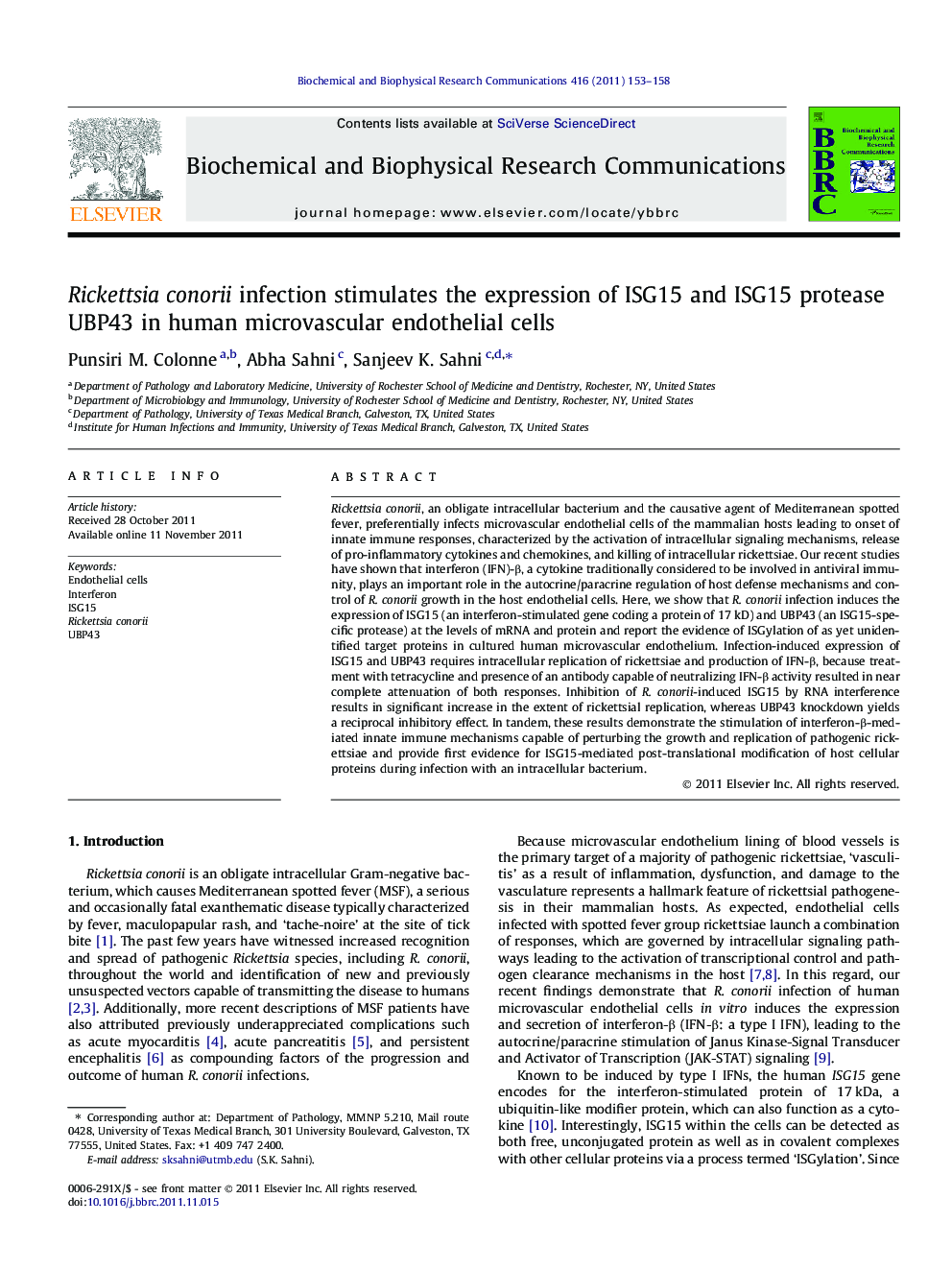| Article ID | Journal | Published Year | Pages | File Type |
|---|---|---|---|---|
| 1930007 | Biochemical and Biophysical Research Communications | 2011 | 6 Pages |
Rickettsia conorii, an obligate intracellular bacterium and the causative agent of Mediterranean spotted fever, preferentially infects microvascular endothelial cells of the mammalian hosts leading to onset of innate immune responses, characterized by the activation of intracellular signaling mechanisms, release of pro-inflammatory cytokines and chemokines, and killing of intracellular rickettsiae. Our recent studies have shown that interferon (IFN)-β, a cytokine traditionally considered to be involved in antiviral immunity, plays an important role in the autocrine/paracrine regulation of host defense mechanisms and control of R. conorii growth in the host endothelial cells. Here, we show that R. conorii infection induces the expression of ISG15 (an interferon-stimulated gene coding a protein of 17 kD) and UBP43 (an ISG15-specific protease) at the levels of mRNA and protein and report the evidence of ISGylation of as yet unidentified target proteins in cultured human microvascular endothelium. Infection-induced expression of ISG15 and UBP43 requires intracellular replication of rickettsiae and production of IFN-β, because treatment with tetracycline and presence of an antibody capable of neutralizing IFN-β activity resulted in near complete attenuation of both responses. Inhibition of R. conorii-induced ISG15 by RNA interference results in significant increase in the extent of rickettsial replication, whereas UBP43 knockdown yields a reciprocal inhibitory effect. In tandem, these results demonstrate the stimulation of interferon-β-mediated innate immune mechanisms capable of perturbing the growth and replication of pathogenic rickettsiae and provide first evidence for ISG15-mediated post-translational modification of host cellular proteins during infection with an intracellular bacterium.
► Increased ISG15/UBP43 expression in Rickettsia conorii-infected host endothelium. ► Involvement of interferon-β-based regulatory mechanism in ISG15/UBP43 expression. ► First evidence of ISGylation of target host proteins in response to a bacterium. ► Antibacterial activity of ISG15 against intracellular rickettsiae. ► Implication of antiviral host defense strategies against a pathogenic bacterium.
